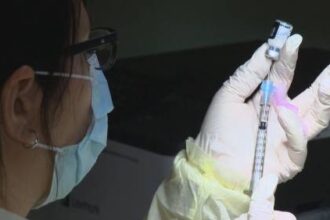In a city often criticized for its hurried anonymity, one Toronto resident is challenging the status quo with a simple yet profound act of kindness. Nala Sayyad, a local woman whose spontaneous generosity has captured the attention of thousands online, has been boarding TTC subway cars with a singular mission: to distribute free homemade food to fellow commuters.
“I just want to make people’s day a little better,” Sayyad explained as she moved through a crowded subway car, offering containers of freshly prepared meals. “Everyone’s struggling with something, and sometimes a warm meal from a stranger can remind you that you’re not alone.”
Videos of Sayyad’s subway food distributions have garnered significant attention on social media platforms, with many TTC riders expressing both surprise and gratitude at the unexpected offering. One clip showing commuters’ reactions has accumulated over 100,000 views in just three days, sparking conversations about community connection in urban environments.
The initiative began after Sayyad noticed increasing signs of food insecurity across Toronto, combined with what she describes as a “disconnection between people” during daily commutes. What started as a one-time gesture with a few extra portions from her family dinner has evolved into a regular undertaking, with Sayyad now preparing dozens of meals specifically for distribution.
TTC officials have acknowledged the initiative, noting that while they appreciate the sentiment, they encourage riders to be mindful of transit rules regarding food consumption. “We understand the good intentions behind such acts of kindness,” said TTC spokesperson Rafael Martinez. “We simply ask that all passengers remain respectful of our cleanliness policies.”
Public health experts consulted by CO24 have indicated that while food sharing poses minimal risks when proper handling procedures are followed, they recommend transparent information about ingredients for allergy concerns. Sayyad confirms she now includes ingredient cards with each meal and follows strict food safety protocols.
The ripple effects of Sayyad’s actions extend beyond the immediate recipients. Several local businesses have reached out offering to support her efforts with donations of containers, ingredients, and even commercial kitchen space. Meanwhile, a small group of volunteers has begun organizing to expand the initiative to other transit lines.
“What makes this remarkable isn’t just the free food,” explains Dr. Leila Wong, a sociologist studying urban community behaviors at the University of Toronto. “It’s the way it disrupts our expectations of public space and forces us to acknowledge each other as human beings rather than obstacles in our commute.”
For Sayyad, the attention has been unexpected but welcome if it inspires others. “I’m not doing this for recognition,” she insists. “I’m doing it because I believe small actions can create meaningful change in how we relate to each other.”
As Toronto continues to navigate post-pandemic recovery and economic challenges affecting many households, Sayyad’s subway meals raise important questions about community responsibility. In a city where thousands commute side by side yet rarely interact, could these small acts of generosity transform how we experience urban life together?










